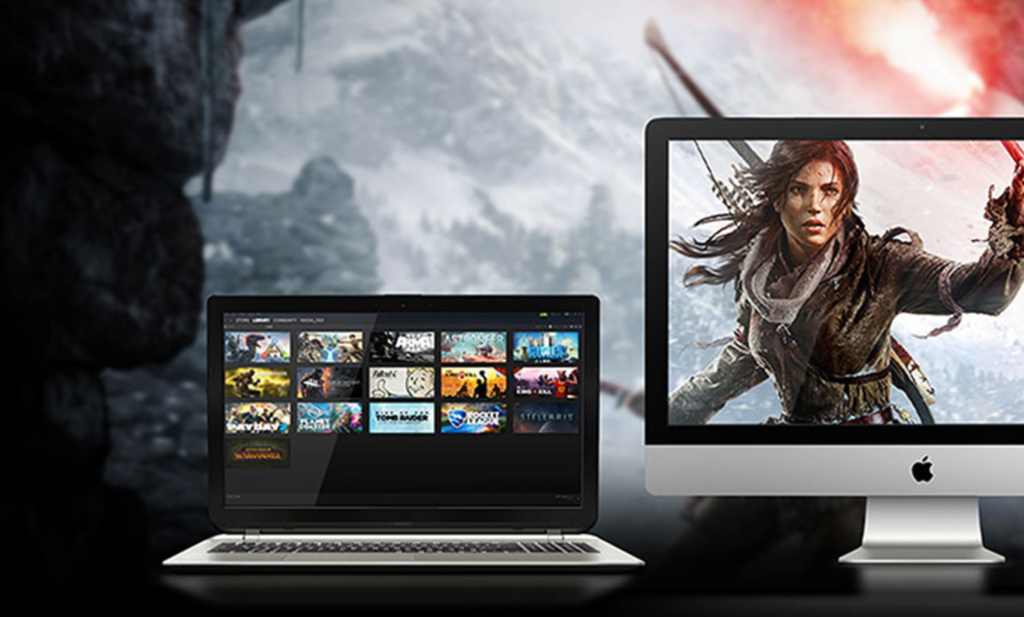Physical video game sales continue to drop as gamers opt for the convenience of digital downloads—especially in the US, where the segment rose 43 percent in January. As with music, movies and television, consumers enjoy the instant gratification of cloud-based interactive entertainment, not to mention the significantly lower cost of a monthly fee compared to purchasing every game available.
Clash Of The Console Titans
PlayStation Now offers nearly 500 games that can be played instantly on a PS4 or PC. Since PlayStation Now uses cloud, users can start a game on one device and continue on another. The service’s inventory consists mostly of PS3 titles, but it’s switching gears to PS4 and PC only. Sony will discontinue support for older devices beginning in August.
Sony’s Game & Network Services division, which includes the PlayStation brand, reported a 5.2 percent increase in sales to $5.33 billion for the three months ending December 31, 2016. PlayStation Now subscribers on devices no longer supported may opt to discontinue their subscriptions or finally invest in a PS4—a console that is selling better than ever. As of January 1, the PS4 is sitting pretty at 53.4 million units sold worldwide—a pace higher than even the PS2, the best-selling game console of all time.
In the wake of sad PS3 and Vita owners comes a timely announcement from Microsoft—an upcoming subscription service called Xbox Game Pass. Unlike PlayStation Now, Xbox Game Pass allows subscribers to download titles directly to their system and play anytime as if they were purchased.
These games will be available to play so long as the subscription is in good standing—otherwise, the player has an option to purchase them at a discount. Microsoft’s new service will launch with approximately 100 games this spring, including Halo 5: Guardians, Payday 2, NBA 2K16 and SoulCalibur II.

Lookin’ Pretty On PC
Purchasing or building a gaming PC can be expensive and time-consuming, but Nvidia offers the solution. GeForce Now is a Netflix-style cloud gaming service that streams video games to systems with the highest-possible quality graphics. In essence, gamers are able to “rent” mid-range or high-end video card capabilities for a limited time.
GeForce Now is as an exclusive service to the Nvidia Shield TV media streaming and gaming set-top box, but another version is making its way to PCs and Macs. The key difference is that the PC/Mac version allows its users to install games purchased from digital storefronts such as Steam, Origin, Uplay, Battle.net and others on a virtual desktop with 1 terabyte of storage. Users can also choose which video card they would like to purchase time for—a mid-range GeForce GTX 1060 or the high-end GeForce GTX 1080.
EA Access offers entry to a number of EA-published games for around $5 a month for either PC or Xbox One, along with early access to new games and a discount on purchases.
LiquidSky doesn’t currently have its own proprietary storefront, but the platform gives access to a virtual Windows desktop in the cloud and an ultra-high-speed direct connection to the internet. Users can install any game they own from any online storefront they prefer such as Steam, Origin, GoG, HumbleBundle, Battle.net and add new titles as they are purchased.
LiquidSky users are able to utilize the service for free by interacting with ads from partners like True[x]. Doing so earns “SkyCredits,” which can be redeemed for time playing with higher graphics and memory speeds.
Virtual Access
Just launched, HTC’s Viveport subscription offers a selection of five VR games or experiences “from an ever-growing library of curated content.” Unlimited access will be available, with users able to swap titles in and out each month. For $6.99 per month, Vive headset owners can sample a plethora of content, adding additional value to their investment.
“The marketplace for Vive apps has grown at a tremendous pace with more than 1,600 titles now available across different app stores and over 30 new apps launching daily,” Rikard Steiber, president of Viveport at HTC Vive, said in a statement. “The rapid growth of the app market is a win for VR overall yet it can present discoverability challenges that affect both customers and content creators. Introducing a subscription model to VR is a natural evolution of where this market is going, and as film, music and TV have proven it’s becoming the preferred way customers want to explore and experience entertainment content.”
Is Mobile Subscription Next?
Mobile gaming is the largest sector in interactive entertainment, and consumers spent a whopping $41 billion on mobile games last year. Console, PC and VR games get their own subscription services, so will mobile be next?
Joost van Dreunen, CEO of SuperData, sure thinks so.
“The success of the subscription model in music and video streaming tells us that consumers are willing to commit to a monthly payment in exchange for access to a curated buffet of content,” he told [a]listdaily. “As the market for mobile gaming matures, game publishers will seek out ways to lock in their audiences, rather than have them play for a short period and move on. A subscription-based strategy will be a key component in that context.”


